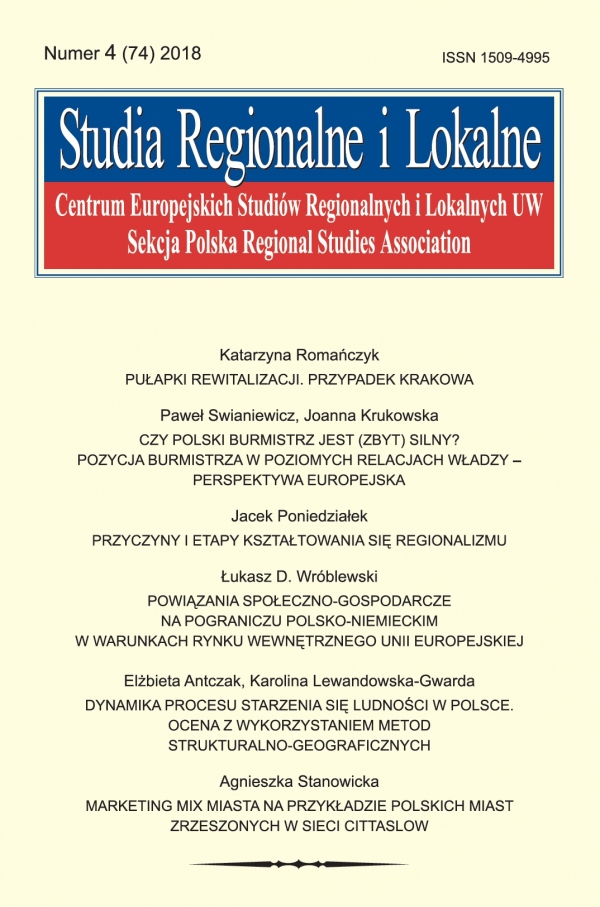Issue:
4(74)/2018
Agnieszka Stanowicka
The city marketing mix: the example of Polish cities associated in the Citt?slow network
DOI: 10.7366/1509499547406
Marketing mix miasta na przykładzie polskich miast zrzeszonych w sieci Citt?slow
Współczesne miasta dynamicznie się rozwijają, poszukując coraz to nowszych koncepcji zarządzania nimi. Jedną z nich, wdrażaną w Polsce od lat 90. XX w., jest koncepcja marketingowego zarządzania miastem, oparta na wykorzystaniu instrumentów marketingu mix. Władze miast poszukują też nowych źródeł przewagi konkurencyjnej – w efekcie zrodziła się koncepcja zarządzania slow city. Jednocześnie obok konkurencji pojawia się chęć współpracy między miastami, czego wyrazem jest rozwój sieci współpracy miast Citt?slow. Celem badania było zidentyfikowanie instrumentów marketingowych, stosowanych w polskich miastach po ich wstąpieniu do tej sieci. Jako metodę badawczą zastosowano ankietę pocztową, którą rozesłano do 26 polskich miast członkowskich Citt?slow w 2017 r. Zaobserwowano, że największe zmiany zachodzą w strategii produktu, w ramach której miasta są zobowiązane do rozwijania tych subproduktów miejskich, które są niezbędne do ich funkcjonowania zgodnie z filozofią slow city. W ramach promocji szczególną uwagę poświęca się działalności PR, której celem stało się kreowanie wizerunku slow city. Warto też podkreślić, że wzrosła „gościnność” miast i otwartość na kontakty z otoczeniem.
The city marketing mix: the example of Polish cities associated in the Citt?slow network
Modern cities are developing dynamically in search of ever newer concepts of management. One of them, developed in Poland since the 1990s, is the concept of the marketing management of the city, which is based on the marketing mix concept. The city authorities also look for new sources of the competitive advantage (this is how the concept of slow city management was born). At the same time, in addition to competition, there is a desire for cooperation between cities, manifested by the development of the Citt?slow city network. The study identifies the marketing mix instruments of cities which are used by Polish cities after they joined the Citt?slow network. The method employed was a questionnaire survey, which was sent to 26 Polish Citt?slow member cities in 2017. It was observed that the greatest changes occur in the product strategies under which cities are obliged to develop these urban sub-products that are necessary for the city to function in accordance with the slow city philosophy. As part of promotional efforts, PR activities should be emphasised, whose aim is to create the image of a slow city. The “hospitality” of the city and openness to contacts with the external environment has also increased.
Affiliation:
Agnieszka Stanowicka: Uniwersytet Warmińsko-Mazurski w Olsztynie, Wydział Nauk Ekonomicznych, Katedra Makroekonomii, ul. R. Prawocheńskiego 19, 10-720 Olsztyn;
agnieszka.stanowicka@uwm.edu.pl 


